
 |
| In this newsletter: |
Society Member Area |
|---|
| Meet the New Members of the Europlanet Society Executive Board | ||
 |
If you missed this webinar with the new Europlanet Society Executive Board Members, you can catch up on YouTube and find slides and recordings for all the past webinars on the Membership website. |
| Dive into Planetary Science Awesomeness – Join the Europlanet Society Discord! | ||
 |
Get ready to elevate your love for planetary science! Join the Europlanet Society Discord and be part of a dynamic community that celebrates curiosity and collaboration. Engage in our Friday Get-Togethers from 12:30-13:30 Paris Time – the perfect opportunity to connect with peers, share discoveries, and build lasting connections. Experience the thrill of staying up to date with the latest planetary science developments, chatting with like-minded individuals, and unlocking exclusive events and opportunities. | |
| > Join Discord |
| Europlanet Society Webinar: To Bennu & Back: What Asteroids can tell us about the Origins of the Solar System | 20 February 2024 13.00 CET | ||
 |
In September 2023, OSIRIS-REx became only the third mission to return samples of an asteroid to Earth. Its target, the carbon-rich asteroid Bennu, holds important clues about the formation of the Solar System and the origins of water and life on Earth. In this session, Ashley King (Natural History Museum) will discuss the first results from the Bennu samples and why sample return missions are crucial for understanding the evolution of planets. | |
| > Find Out More |
| Europlanet Society Webinar: Early Career Spotlight | 19 March 13.00 - 15.00 CET | ||
 |
This instalment of the Europlanet Society Webinar series will focus on tools for our early career community. Featuring short talks from EPEC and from space career specialists Derek Polowyj (Eden Scott), Joanne Oliver (SpaceCareers.UK) and Ross Crosby (Innoforge), this session aims to provide you with practical tips and contacts to help you take your next career step. |
|
| > Find Out More |
Europlanet News |
|---|
| Join VESPA 2024 Warsaw Workshop - Open Call for Planetary Science Projects Now! | ||
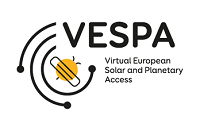 |
We invite the scientific community to participate in the VESPA 2024 open call, a unique opportunity to play a pivotal role in advancing Planetary Science and Solar System data accessibility, aligned with Europlanet 2024-RI. Benefit of participating are:
Don't miss this chance to be at the forefront of research. Submit your project proposal at VESPA 2024 Open Call. |
|
| EPSC Call for Sessions | ||
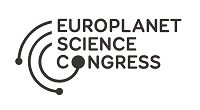 |
The Call for Sessions for the Europlanet Science Congress (EPSC) 2024 is now open, with a deadline of 6 March 2024. The community is invited to take an active part in organising the scientific programme of the conference by suggesting new sessions, with conveners and a description, within a programme group (PG). | |
| > Suggest a Session | ||
| Planetary Mapping Winter School | ||
 |
Over 600 people are participating in this year’s Planetary Mapping Winter School, which launched last week with synchronous (live) sessions from 22-26 January. The asynchronous part of the workshop will run on Streavent throughout February and all training materials are now publicly available. | |
| > View the Lessons | ||
| Benelux Hub Elections | ||
 |
The Benelux Hub invites members of the Europlanet Society to consider joining the Benelux Hub Committee. Elections will be held in February. To find out more, contact benelux@europlanet-society.org. | |
Planetary Science News |
|---|
| We’re Heading for Venus | ||
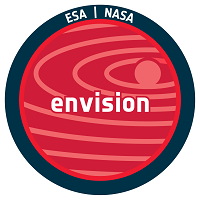 |
Congratulations to EnVision mission team on the mission’s official adoption on 25 January 2024 by ESA’s Science Programme Committee. EnVision will study Venus from its inner core to its outer atmosphere, giving important new insight into the planet's history, geological activity and climate. | |
| > Read More |
| In situ measurement and sampling of acidic alteration products at Río Tinto in support of the scientific activity of the Ma_MISS instrument | ||
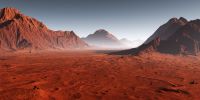 |
Ferrari et al, Front. Astron. Space Sci., 12 July 2023, Sec. Astrobiology, Volume 10 - 2023 The Mars Multispectral Imager for Subsurface Studies (Ma_MISS) instrument is a miniaturised visible and near-infrared (VIS-NIR) spectrometer (0.5–2.3 μm) devoted to the Martian subsurface exploration and integrated into the drilling system of the ESA Rosalind Franklin rover mission. This paper reports the scientific results obtained by a campaign funded through a Europlanet Transnational Access visit in July 2022. The results confirm that the Río Tinto site is important for understanding the mineralogical and geochemical evolution of the Martian surface/subsurface, preparing for the exploitation and interpretation of scientific data from the Ma_MISS instrument during the active phase of the mission, and for defining the priorities of the astrobiological objectives on the ground. |
|
| > Read The Paper | ||
| EXPLORE Apps for Lunar Exploration and Astronomy | ||
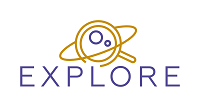 |
The EXPLORE Scientific Data Applications for astronomers and planetary explorers use interactive visual analytics and machine learning to reveal and contrast properties of objects in our galaxy. From identifying the ‘weirdest’ outliers in a population of stars to creating maps of the dusty Milky Way, or combining datasets for an immersive exploration of the lunar surface, the open-source tools are designed to help astronomers investigate, annotate and work together on interesting results in a collaborative online environment. EXPLORE has received funding from the European Union’s Horizon 2020 research and innovation programme under grant agreement No 101004214. |
|
| > More Information | ||
Events & Opportunities |
|---|
| Scientific Colloquium of French Planetology | July 1-5, 2024 | Nantes | ||
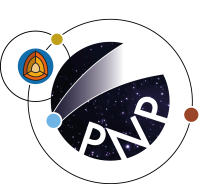 |
PEPR ORIGINS , Europlanet France, SFE and PNP are meeting to organise a scientific symposium bringing together the entire community. This colloquium will address the scientific and methodological themes of the four entities, ranging from the formation of planetary systems, the characterization of exoplanetary systems, to the study of solar system objects and their habitability. A website will soon go live with a registration deadline of early March. | |
| INAUGURAL WORKSHOP ON NUCLEAR ASTROCHEMISTRY | 26 February 2024 — 01 March 2024 | Trento | ||
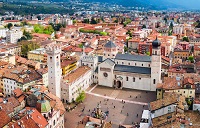 |
Explore the groundbreaking field of Nuclear Astrochemistry, uniting nuclear physics and astrochemistry to unravel the mysteries of star and planet formation and their role in the origins of life; join leading experts and early career researchers at the first-ever workshop from February 26 to March 1, 2024, in Trento, Italy – Register now for an illuminating journey into the cosmic origins of life! | |
| > More Information | ||
| ISSI/ISSI-BJ 2024 Joint Call for Proposals for International Teams in Space and Earth Sciences | 14th March 2024 | ||
 |
The International Space Science Institute (ISSI) in Bern (Switzerland) and ISSI-BJ in Beijing (China) invite proposals for establishing International Teams to conduct, at their respective meeting facilities, research in the Space and Earth Sciences. To be eligible, research projects must involve the interdisciplinary analysis and evaluation of space mission data. They may also draw on complementary ground-based data and/or theoretical modelling where this adds scientific value. | |
| > More Information | ||
| Earth and Planets Origin and Evolution Workshop | Paris | 13-17 May 2024 | ||
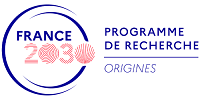 |
Registration and abstract submission are now open for the Earth and Planets Origin and Evolution Workshop which will take place in Paris May 13-17 2024. To register and submit an abstract, please complete this form. |
|
| Call for applications for the position of Director of the Institute of Space Astrophysics | ||
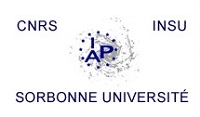 |
A research committee chaired by Mrs. Athena Coustenis was set up by the supervisory authorities. This committee is responsible for soliciting applications, and for making an initial selection among the applications received in order to transmit to the supervisory authorities those it deems appropriate to exercise the function of Director/Director of the IAS. The two trustees will select and appoint the ICD Director. Further information can be found on the IAS website, in particular on the scientific, technical and administrative organisation of the laboratory https://www.ias.u-psud.fr/ |
|
| Space Resources Week 2024 | Luxembourg & online | 25-27 MARCH 2024 | ||
 |
The sixth edition of Space Resources Week will convene space agencies, influential thinkers, scientists, and forward-thinking business leaders in a comprehensive gathering. The primary goal of this edition is to fortify the foundational aspects of the space resources field, align the scientific and commercial requirements and capabilities, and collaboratively construct a sustainable architecture for future space resource endeavours. | |
| > Find Out More | ||
| Online Workshop for Water Resources – Register Now | ||
 |
The European Space Resources Innovation Centre (ESRIC) would like to invite you to participate in a two-day (3 hours each) online workshop on potential water resources on the Moon and Mars. As part of a project for the European Space Agency (ESA) and in collaboration with Air Liquide, ESRIC is undertaking a study focused on the purification of naturally occurring water on the Moon and Mars. One of the key challenges of purification of water from these potential resources is the level of uncertainty around the nature of the deposits and the impurities associated with them. As part of this project, we would like to bring together experts from the planetary science and ISRU communities to discuss what is currently known or expected from these water occurrences. This is of significant interest to the space resources community, and we would like to have as a clear outcome a paper that will collate all of the current knowledge to be used as a reference document. |
|
| > Register Here |
| 2 Year Postdoctoral Position Available | LESIA | ||
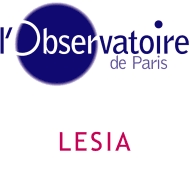 |
The Laboratoire d'études spatiales et d'instrumentation en astrophysique (LESIA) at the Paris Observatory invites applications for a 2-year postdoctoral position funded by the ANR grant SHERPAS. This research opportunity focuses on Pluto and Triton atmospheric modeling, specifically addressing key questions related to their surfaces and atmospheres. The successful candidate will contribute to developing the Pluto/Triton version of the Generic Planetary Circulation Model, collaborating with LMD (Paris) and possibly other laboratories. This position offers a unique chance to explore the climates of Pluto and Triton, considering factors such as organic haze and hydrocarbon ice clouds, with access to computing hours on a national facility. Apply now for a chance to contribute to groundbreaking research on these intriguing celestial bodies. Applicants should send a CV (including publication list), a cover letter stating their research accomplishments, interests in the project and date of availability, and 1 to 3 contact information for references |
|
| > Email Your Information |
| Did you know? As Europlanet Society member, you can share your planetary science news via our newsletter. Contact the editorial team! |
| Not a member yet? Click here to join the Europlanet Society! |
| Contact: |
Department of Planetary Atmospheres Royal Belgian Institute for Space Aeronomy (BIRA-IASB) Avenue Circulaire 3 Brussels, BRU 1180 Belgium |
| membership@europlanet-society.org |
| Want to change how you receive these emails? You can update your preferences, unsubscribe from this list, or unsuscribe from all Europlanet Society mailing lists. |
| Europlanet AISBL (Association Internationale Sans But Lucratif - 0800.634.634) is hosted by the Department of Planetary Atmospheres of the Royal Belgian Institute for Space Aeronomy (BIRA-IASB), Avenue Circulaire 3, B-1180 Brussels, Belgium. |